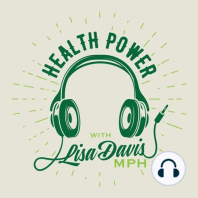10 min listen
EP #1138: BONUS EPISODE! GET AHEAD OF STROKES with Steven Hetts, MD
From"Health Power"
ratings:
Length:
13 minutes
Released:
Oct 28, 2022
Format:
Podcast episode
Description
Lisa is joined by Steven Hetts, MD to talk about Strokes for World Stroke Day on October 29th.Steven Hetts, MD is Chief of Interventional Neuroradiology at the UCSF Mission Bay Hospitals, where he provides cutting-edge, minimally invasive endovascular therapy for children and adults with stroke, cerebrovascular disease and tumors, including retinoblastoma. He founded the Interventional Neuroradiology services at San Francisco General Hospital and the San Francisco Veteran’s Administration Hospital, where he served as Chief until 2015. Throughout his career, Dr. Hetts has maintained an active clinical practice at UCSF Parnassus, treating patients with stroke, brain aneurysms, arteriovenous malformations, dural arteriovenous fistulas, spinal vascular malformations, and tumors including meningioma. Dr. Hetts is also the founding Co-Director of the UCSF Hereditary Hemorrhagic Telangiectasia Center of Excellence wherein he and his colleagues provide care for patients with vascular malformations of the brain, severe nosebleeds (epistaxis), and arteriovenous malformations of the lung and other organs. Dr. Hetts received his MD from Harvard Medical School and his undergraduate degree from Harvard College. He completed his medical internship at Stanford and his diagnostic radiology residency, diagnostic neuroradiology fellowship, and interventional neuroradiology fellowship at UCSF, where he joined the faculty in 2008.A patient’s access to appropriate care in a timely manner can make a huge difference in his or her outcomes. According to a 2017 study by the American Academy of Neurology, severe stroke patients gain a week of healthy life for every minute that is saved in getting them to appropriate care.Stroke costs in the U.S. are currently estimated at about $46 billion. The minimally invasive nature of thrombectomy helps stroke patients get back on their feet so they are able to live independently and work again.Nearly 2 million brain cells die every minute a stroke goes untreated. For the best possible outcome, a stroke patient ideally needs to receive a thrombectomy within 24 hours.Patients who need emergency care deserve the best care possible, whether it is for trauma or stroke.Thousands of lives could be saved every year in the state, but that will only happen if people pick up the phone and call 911. People need to know how to act FAST, so they can help themselves or their loved ones survive stroke. FAST- Facial drooping, Arm weakness, Speech difficulties, Time to call EMS.Like trauma, stroke is time-sensitive and requires first responders to determine stroke severity. Unlike trauma, most states do not have requirements for first responders to take severe stroke patients to a facility specially equipped to treat them. Do stroke patients deserve less than trauma patients?Every 40 seconds, someone in the U.S. has a stroke. Nearly 20% — 140,000 annually — die from their condition, and many more are left permanently disabled. Physicians from the Society of NeuroInterventional Surgery (SNIS), the sponsoring organization for the GAOS coalition, say that if the nation’s stroke system of care looked more like our trauma triage system, patients would experience less disability, and more would survive. Sign up for our email list at GetAheadofStroke.org and search hashtag #SurviveStroke or #StrokeAwarenessMonth on social media to learn how the campaign is helping to improve stroke care across the country. Currently, most states do not have clear protocols to ensure a person who is having a severe stroke is transported directly to a Level 1 stroke center, where they would have access to a specially trained neuroendovascular care team that can help them 24/7/365.
Released:
Oct 28, 2022
Format:
Podcast episode
Titles in the series (100)
Best Ways to Boost Your Collagen by "Health Power"
